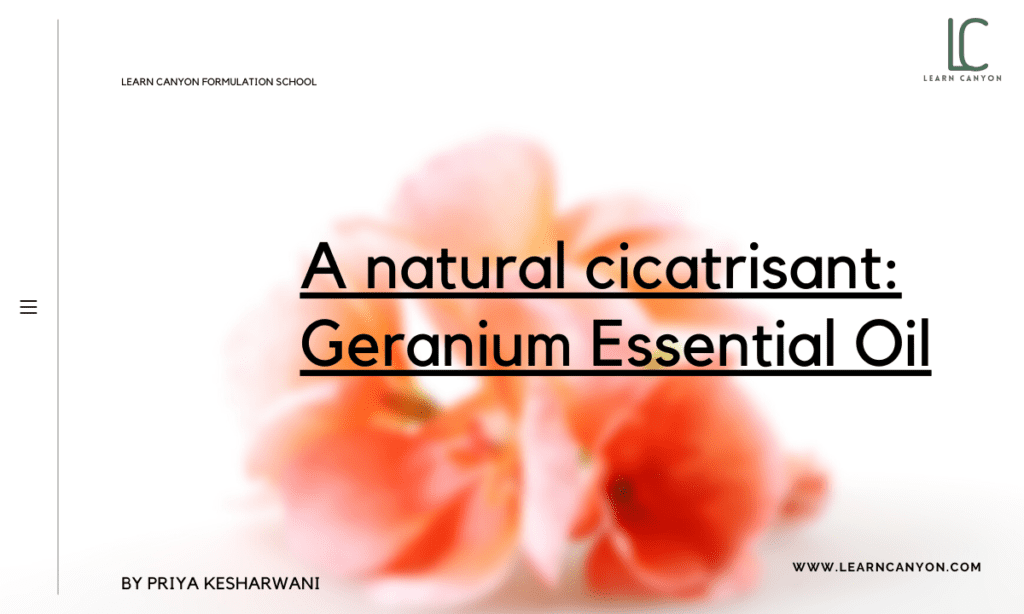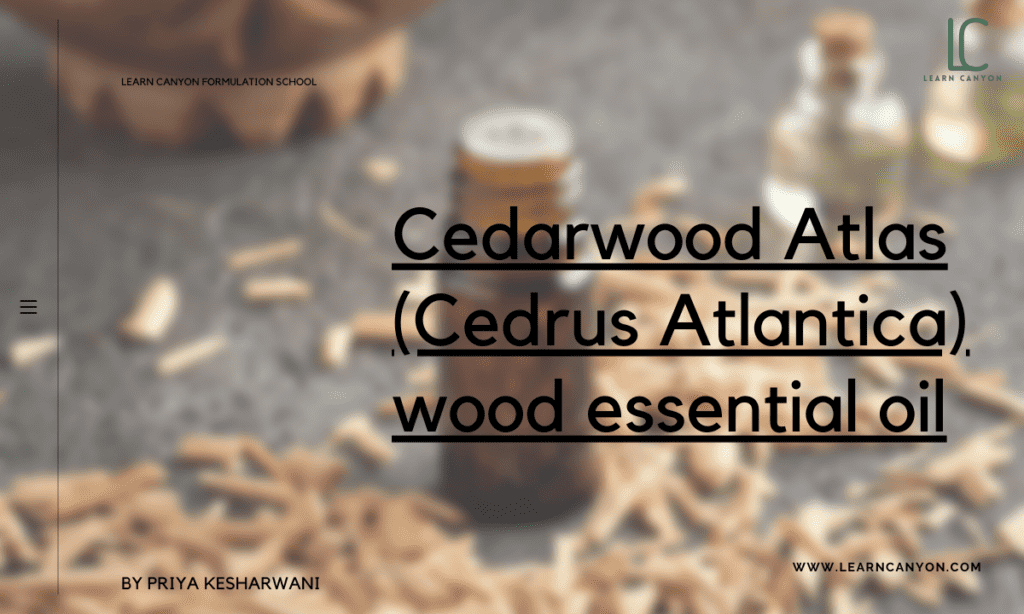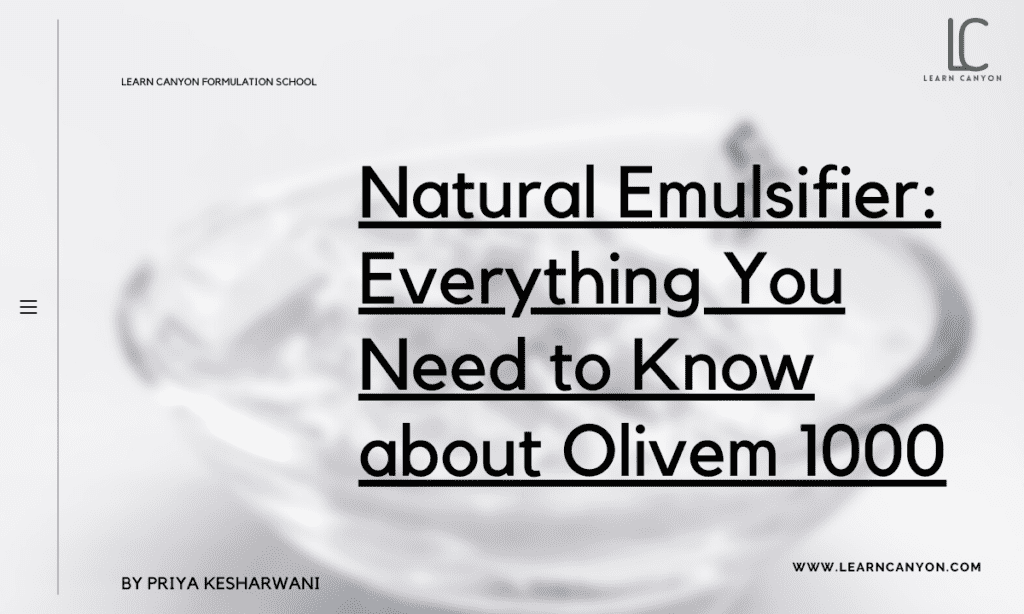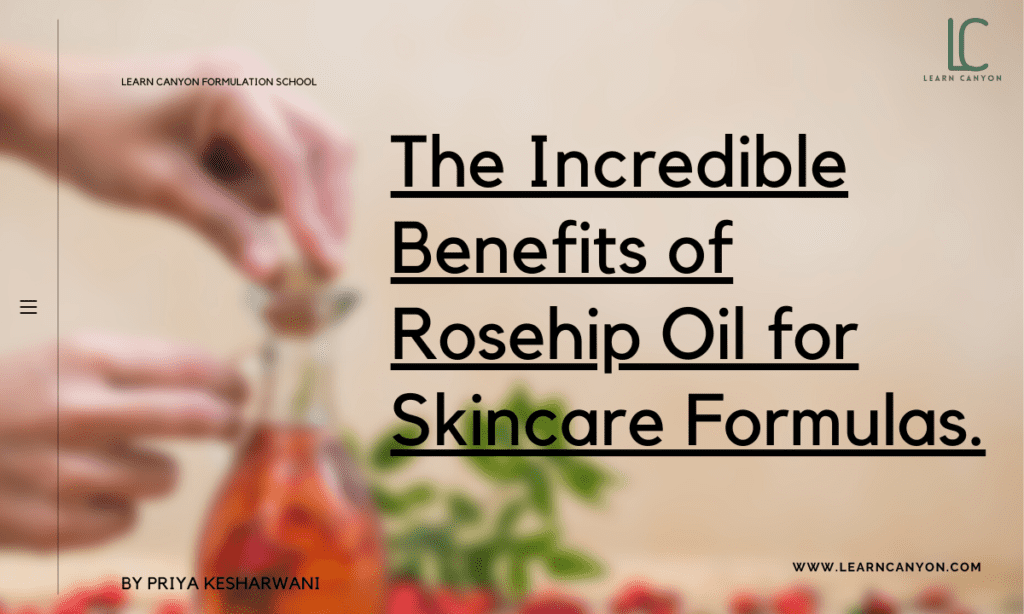
Cedarwood Atlas Essential Oil

What is Cedarwood Atlas wood essential oil?
Cedarwood Essential Oil is steam distilled from the wood of the Cedar tree, which has various species, including Cedrus atlantica, Cedrus deodara, Juniperus mexicana, and Juniperus virginiana, which are known as Atlas, Himalayan, Texan, and Virginian Cedarwood, respectively.
The colours range from yellow to brown. Consistency ranges from thin to viscous. Dry, woody, slightly camphoraceous, and smokey fragrance.
| What is it? | Cedarwood Essential Oil is extracted from the wood of the Cedar tree by steam distillation. |
|---|---|
| INCI | Cedrus atlantica wood oil |
| Appearance | Yellow to brown |
| Texture | Thin to viscous |
| Recommended Usage | 1-10% |
| Solubility | Oil soluble |
| Melting point | NA |
| Boiling point | NA |
| pH | NA |
| Aroma | Sweet and woody fragrance. |
| Why do we include it in formulations? | Cedarwood essential oil is anti-inflammatory and antibacterial. This could make it useful for skin disorders such as acne. |
| How to work with it? | Included in the formulation's cooling down phase. Heat should be avoided at all costs. |
| Applications | Cedarwood Essential Oil can be used to relieve irritation, inflammation, redness, and itching, as well as dryness that causes cracking, peeling, or blistering. |
| Absorption rate | Average to fast |
| Strength | Protects the skin from environmental toxins at a low cost. |
| Weaknesses | Before applying oils to the skin, always dilute them with a carrier oil. |
| Substitution | Lavender |
| How to store it? | Stored in a cool, dark and dry place. |
| Shelf life | Approximately six to eight years. |
Fast Facts
| Type of ingredient | Essential oil |
|---|---|
| Main benefits | Astringent, Tonic, Firming/Tightening, Detoxifying, Stimulating, Soothing, Calming, Antioxidant, Restorative. |
| Who should use it | In general all skin types |
| How often can you use it? | Twice Daily |
| Works well with | Cedarwood oil, like most essential oils, should be diluted in a carrier solution such as a fatty oil before usage. |
| Doesn't work with | Before using Basil essential oil, tell your doctor about any prescriptions you're taking or items you're using. |
| How to use | When your mixture is cooling down, add this ingredient. |
Mechanisms of action
Cedarwood essential oil has antibacterial, antifungal, anti-inflammatory, antispasmodic, diuretic, and insecticidal activities due to the presence of bioactive ingredients such Alpha Cedrene, Beta Cedrene, Thujopsene, Cedrol, Widdrol, and a group of Sesquiterpenes.
Benefits of Cedarwood Atlas wood essential oil
Cedarwood Essential Oil can be used to relieve irritation, inflammation, redness, and itchiness, as well as dryness that causes cracking, peeling, or burning.
Cedarwood Oil is said to protect the skin from environmental pollutants and toxins by regulating sebum production, removing acne-causing bacteria, and demonstrating a protective astringent function.
Its antiseptic and antibacterial characteristics help to eradicate unwanted odours, making it an effective deodorizer, and its firming properties aid to lessen the appearance of age indicators like loose, wrinkled skin.
Side effects of Cedarwood Atlas wood essential oil
There have been very few reports of cedarwood oil causing skin sensitivity. Before applying essential oils topically, always dilute them with a carrier oil. Before applying the oil, do a patch test to be sure it won’t bother your skin. If swallowed, cedarwood oil, like all essential oils, can be harmful.
How to use it in formulation?
Make sure essential oils are properly diluted before utilising them. Both base oils and alcohol can be used to dilute the product. When your mixture is cooling down, add this ingredient. Reduces the appearance of age signs and helps to eradicate unwanted odours.
Work well with other ingredients
This oil serves as a base note and/or fixative, assisting in the binding and fixing of other smells. Atlas Cedarwood is a versatile scent that pairs well with citrus oils like as bergamot, mandarin, and grapefruit, crisp smells such as cypress, juniper, and rosemary and various base/fixative notes such as frankincense, myrrh, labdanum, and patchouli, and florals such as ylang ylang. Spice notes such as cardamon are also a good combination.




